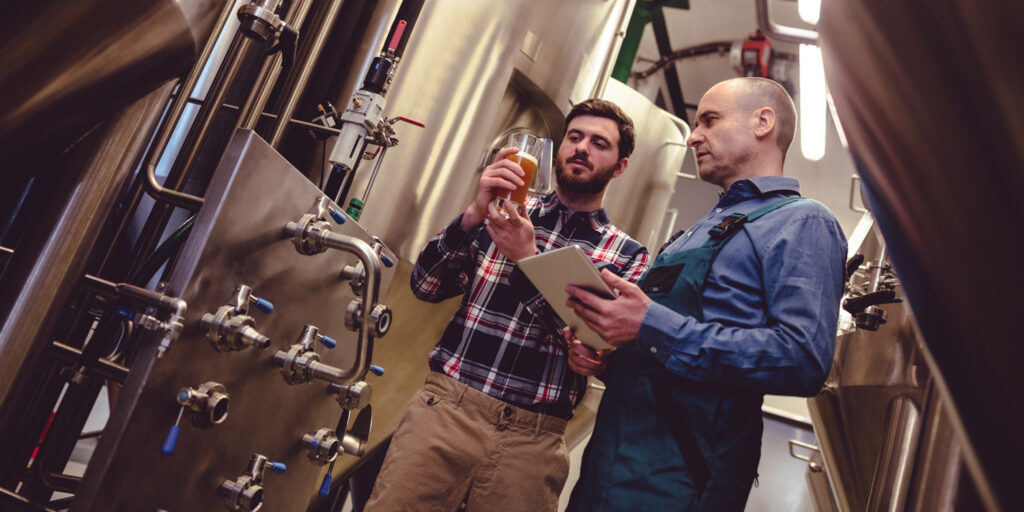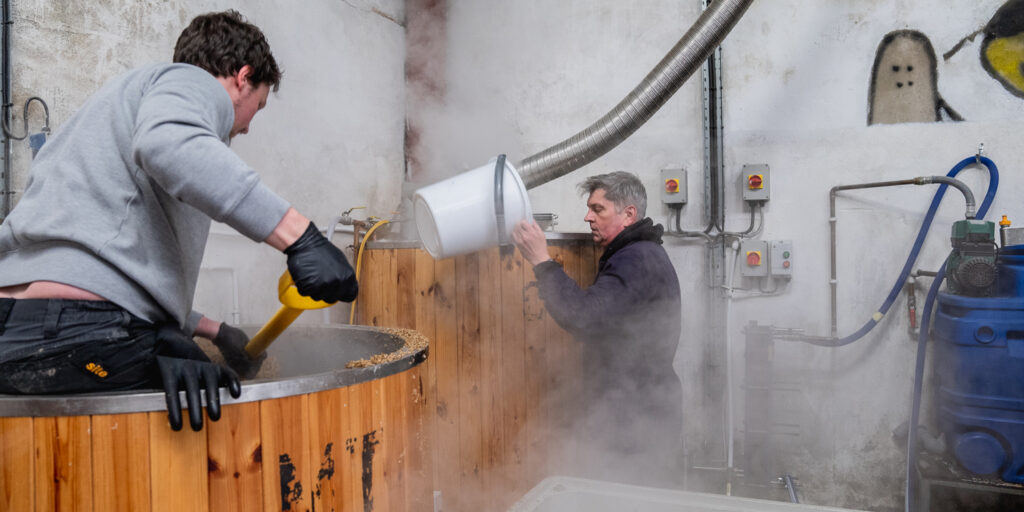Is The Cooperative Model Still Viable For Breweries?

On the 21st of April 2023, Farmageddon Brewery of Comber, County Down, announced it would be shutting down after a decade in operation.
“After 10 years of trying to turn a love of brewing into a successful business, unfortunately, we didn’t make it,” the brewery wrote in a statement published online. “The past few years have brought significant economic and personal challenges that have pushed us to make the decision to close our doors.”
Farmageddon, founded by Eion Wilson in 2013, was the first in a small wave of cooperatively-owned breweries to emerge within Northern Ireland. Born out of the local mixed martial arts (MMA), punk rock and – most importantly – homebrewing scenes the co-op was run by seven friends, each of them owning their own stake in the business. The brewery was located on a five-acre farm that featured cider and perry trees, as well as livestock, and even had its own beehives.
If you frame this type of business in a modern context, it sounds like the ideal for a modern, sustainability-conscious brewery. Its beers were contemporary, with a focus on the use of North American hop varieties in sessionable styles such as pale ales and IPAs. Farmageddon’s greatest challenge was perhaps that it operated in a young Northern Irish beer market, which, due to various factors, was not progressing at the same pace as that which was growing rapidly over in Great Britain.
Its loss came at a time when it really felt like the Northern Irish scene was kicking on to the next stage of its evolution and was likely felt keenly by the local beer community. The pressures on brewing and hospitality businesses throughout the UK at present are insurmountable, causing many to make the difficult decision to close up shop for good. Only last month did my friends Katie and Tom Mather have to shut their excellent bar, Corto in the Lancashire Town of Clitheroe, as despite their brilliant offering, they were unable to make it work financially.
I managed to visit Corto a couple of weeks before it closed, but instead of feeling upset or disappointed, I found myself feeling angry. How could a bar with an excellent business model, flawlessly executed, be unable to succeed because of market pressures driven by inflation rates that have been allowed to spiral out of control? When I think about Farmageddon and the other breweries and bars that have also closed down over the past 18 months or so, I feel a similar ire burning away inside my chest. This is not how things should be, surely?
I feel like I’m repeating myself when I say this, but I still feel we are, regrettably, yet to see the true extent of the damage being caused by these pressures and the long-term impact they will have on the beer market.

As previously mentioned, Farmageddon was set up slightly differently to a typical brewing business, the majority of which in the UK are set up as private limited companies. Instead, it was initially established as a cooperative before eventually converting to a private limited company in 2017. A cooperative falls under the umbrella term ‘mutual ownership model’, used by the UK Government to differentiate these businesses from the far more typical private company model.
So what exactly is a cooperative business? The term is defined by the International Co-operative Alliance as: “An autonomous association of persons united voluntarily to meet their common economic, social and cultural needs and aspirations through jointly owned and democratically controlled enterprise.”
In layman’s terms, this means the company is controlled by its members, each of them having a say in how the business operates. This differs from a private limited company, which will have a single or small, centralised group of directors who carry out the decision-making and take responsibility for its financial success. Essentially, a cooperative gives more power to its investors, directors or employees, depending on how it is set up.
Within the cooperative model, there are at least four distinctive operating models:
- Worker Cooperatives, which effectively operate a system of 100% employee ownership. This is similar to an ESOP, or Employee Stock Ownership Plan, where workers become shareholders in the business.
- Consumer Cooperatives, which is where members, including designated company directors, are the customers of the business.
- Producer Cooperatives, a model where members are independent producers who form a consortium, often to reduce fixed costs such as distribution or marketing.
- Community Cooperatives, which draws its members from a local community (or a
community of people with a common interest).
The earliest example of a cooperative brewery I have come across is Hesket Newmarket Brewery in the northwestern English county of Cumbria, which was established in 1988. The brewery wasn’t originally set up as a cooperative. However, pivoting to this model in 1999 in order to prevent either its closure or a sale to a larger enterprise. In terms of the latter, for this to happen a clear majority would need to vote in favour of such action, which is a good example of the challenges being a cooperative presents—decision-making can be much slower, which can be challenging in the beer industry, where things can change quickly, often without notice.
There is little evidence of many cooperative breweries operating in the UK, with the vast majority choosing to operate as limited companies. In Northern Ireland, however, following the establishment of Farmageddon in 2013, there was a small ‘boom’ of cooperative breweries. The following year, Boundary Brewing Cooperative opened in a former industrial site just off Newtownards Road in East Belfast. About a year after this, Lacada Brewery opened in the north coast town of Portrush.

Not all of these breweries adopted the same cooperative model. Farmageddon would have perhaps best been described as a worker cooperative, as it was owned and run by a small group of friends. Boundary is arguably a consumer cooperative, as it asked customers to invest in return for a stake in the business. The Belfast brewery has held three separate investment runs in 2014, 2015, and 2022 respectively.
These rounds of investment have allowed Boundary to raise £340,000, creating vital cash flow, allowing it to expand its brewing capacity, and latterly to open a permanent taproom in East Belfast. This also means it has around 1400 member-owners, each – technically speaking – with an opportunity to have a say in how the business is run.
Lacada describes itself as a community-owned cooperative, but this is demonstrative of the fuzzy definition surrounding a cooperative business. Yes, its members are part of the local community, but they are also customers of the business.
The big question, especially following the demise of Farmageddon and its decision to convert to a limited company four years into trading, is why aren’t there more brewing cooperatives?
Personally, I think the idea of mutual or shared ownership is progressive and democratic, and in theory, I’m all for it. Being able to share responsibilities and decision-making should, effectively implemented, give businesses advantages in terms of breaking down more difficult tasks and decisions, especially if people are bringing different skill sets and knowledge to the table.
What the model doesn’t take into account, however, is real life: difference of opinions in how a business is run, lengthy votes on decisions that could (and probably should) be quickly and effectively made by one person who knows what is best for the business. And then there’s just plain old ego. Just because you have an ownership stake in a business doesn’t automatically mean you know what’s best for it.
Will we see more breweries move to mutual ownership models, or is there enough evidence to suggest that this isn’t necessarily a solid business plan? As we’ve seen, in the short term, it can certainly provide a brewery with the necessary resources to grow, which is vital should its many owners wish to see a return in their investment. I pose, however, that for a brewery to succeed in today’s market it needs a clear, well-defined vision.
Difference of opinion can risk pulling a company in too many different directions when, often, staying true to a well-executed business plan and a clear strategy is what works best. I guess we can relate to the old adage: “too many cooks spoil the broth” or, in this case, beer. Farmageddon’s time may be up, but I sincerely hope the UK’s remaining cooperatively owned breweries can find a way to stay true to the path and support their members through the tumultuous financial times we presently find ourselves in.
— Matthew Curtis